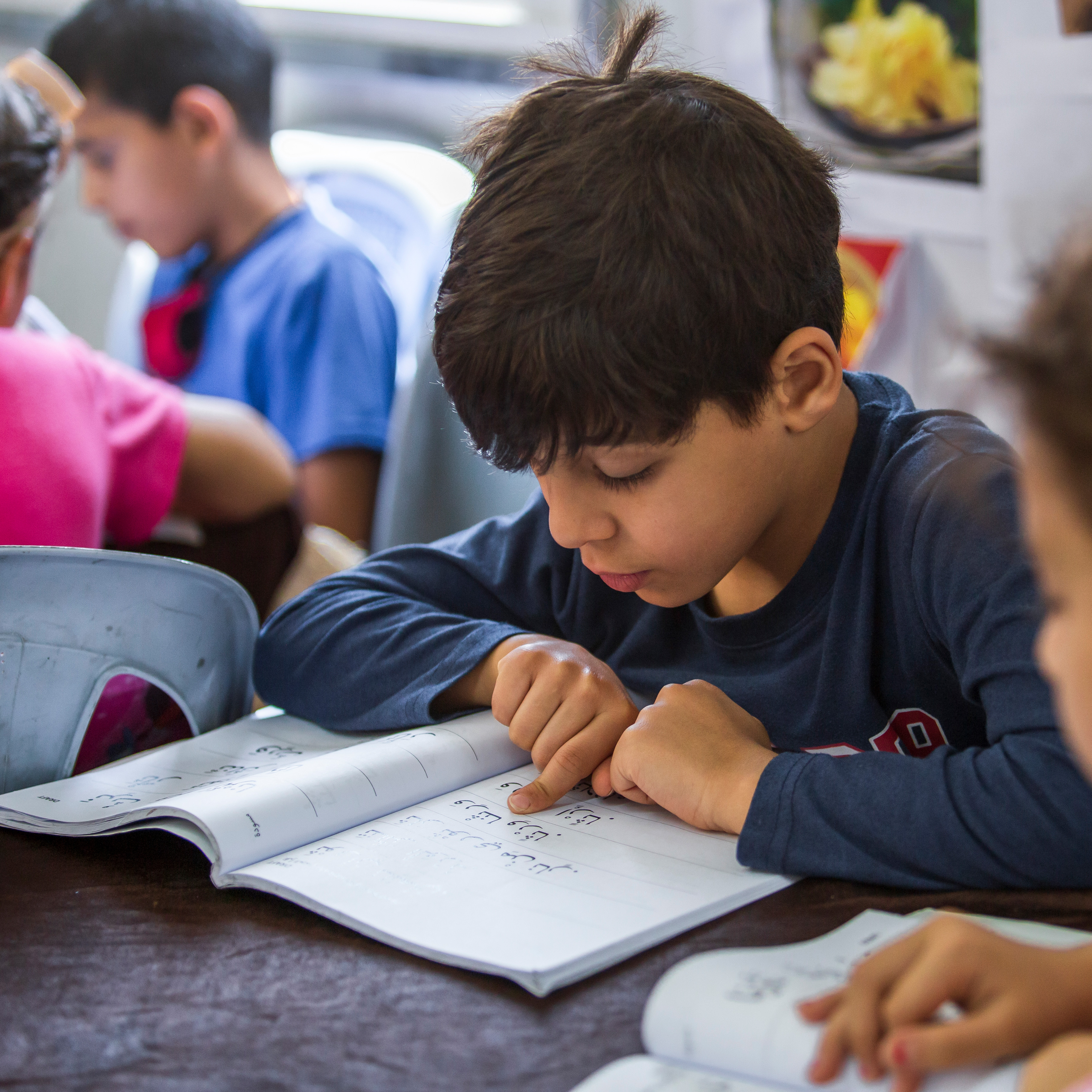Let's Read Fluently (LRF) pilot evaluation is an experimental research study aimed at better understanding ‘what works’ at the ‘learning to decode’ phase of children’s early Arabic literacy development. LRF tests a cognitive science-based instructional method to improve oral reading fluency for children in grades 1, 2 and 3 in public schools in Jordan. More specifically, LRF involves a practice-focused pedagogy and student practice book that was developed by cognitive psychologist Dr Helen Abadzi and the Al Qasimi Foundation in the UAE. The LRF approach draws upon insights from studies in linguistics and cognitive science, accounting for the Arabic script’s visual complexities and the relationship between memory function and reading. It has been developed to help students build ‘low level’ neurological functions - rapidly distinguishing letter shapes, chunking and decoding sounds and words.
The LRF pilot study aims to explore the potential impact the intervention may have on students' reading ability in primary school years (grades 1-3) as well as the feasibility of a large-scale randomized controlled trial to better assess its effects. The need for this evaluation stems from the fact that there is a lack of evidence about what works in Arabic language classrooms and a lack of evidence-based interventions currently in schools.
During the pilot phase, there are two versions of the LRF model being studied, both lasting one semester:
- A Whole Class model (W/C) delivered to all students in a class over three 30-minute sessions a week during the second semester of grade 1
- A ‘Literacy Catch-Up’ model (C/U) delivered to small groups of students identified as among the 20% of lowest achieving pupils during either the second semester of grade 1or the first semester of grades 2 and 3.
If the results from the Pilot evaluations secure evidence of promise and demonstrate the feasibility of Efficacy Trials, the project will progress one, or both, of the implementation models to an Efficacy Trial which is expected to complete in 2023.
How is the LRF pilot being evaluated?
The pilot study uses a randomized design, incorporating mixed methods. Schools are randomized in equal proportions into two treatment arms (W/C and C/U) and one ‘business-as-usual’ control group. The primary and secondary outcomes are Arabic literacy attainment as measured by the Early Grade Reading Assessment (EGRA). Outcomes will be measured at baseline and endline time-points, with differences between each treatment arm and the control group of schools reported at endline. The evaluation also includes an implementation and process evaluation (IPE) component, including qualitative focus group discussions, key informant interviews, a teacher and pupil survey, and analysis of training attendance data.
When will the evaluation report be due?
The evaluation report of the pilot will be published in fall 2022.
The document provided here is the Pilot Evaluation Protocol. It gives more detailed information about the LRF intervention and the design of the pilot study currently being conducted.
The evaluation of LRF is led by Queen Rania Foundation and is supported via the Global Trials Fund strand of the Education Endowment Foundation “Building a global evidence ecosystem for teaching” Project, which is delivered in partnership with the BHP Foundation. This Global Trials Fund supports scientifically rigorous research that measures the impact of interventions to improve educational attainment and related outcomes in either low, middle or high income countries.
The LRF intervention was operationalized for the Jordanian context and is being implemented by the Queen Rania Teacher Academy (QRTA) and conducted by a consortium of partners led by NatCen, an independent social research institute in the
